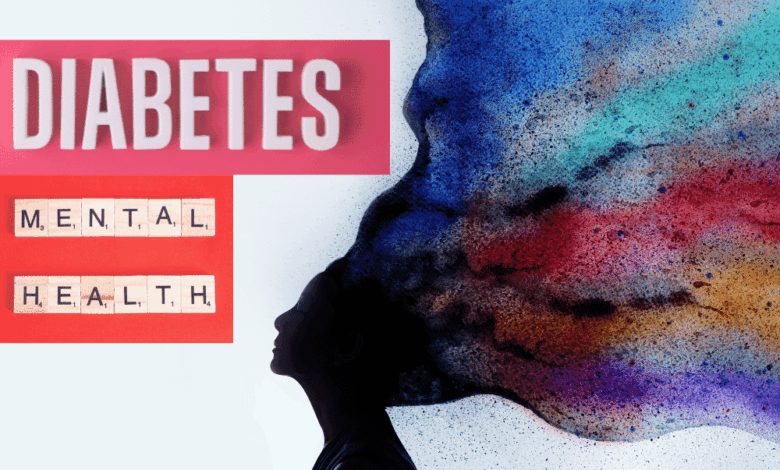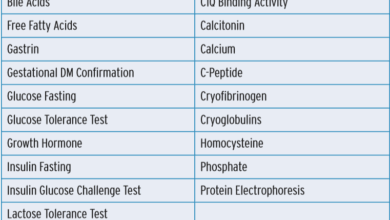
Mental health and diabetes resources are crucial for managing both conditions effectively. Living with diabetes can present unique mental health challenges, from the stress of managing blood sugar to the emotional impact of complications. This guide explores a range of accessible resources, including support groups, therapy options, and online platforms, designed to help individuals navigate these challenges and prioritize their well-being.
This comprehensive resource dives into the practical aspects of finding, utilizing, and understanding these vital resources. We’ll explore different types of support, from online communities to professional mental health services, offering a detailed look at their accessibility and affordability. The guide also highlights the importance of self-care, coping mechanisms, and building a strong support system.
Introduction to Mental Health and Diabetes Resources
Diabetes, a chronic condition affecting blood sugar regulation, and mental health, encompassing emotional, psychological, and social well-being, are intricately linked. Individuals living with diabetes often experience a range of emotional and psychological challenges that can impact their overall health and quality of life. Recognizing these challenges and providing accessible resources is crucial for effective management and support.The complex interplay between diabetes and mental health necessitates a holistic approach to care.
Effective management of diabetes, including blood sugar control, medication adherence, and lifestyle adjustments, is essential to mitigate the risk of developing mental health issues. Conversely, good mental health contributes significantly to the ability to manage diabetes effectively. A supportive environment and access to appropriate resources can significantly improve outcomes for individuals with diabetes.
Common Mental Health Challenges in Diabetes
Individuals with diabetes frequently face a range of mental health challenges, stemming from the chronic nature of the condition, the demands of management, and potential complications. These challenges can include anxiety, depression, stress, and feelings of isolation or hopelessness. Difficulties with blood sugar control, medication adherence, and the fear of long-term complications can contribute to these issues. Moreover, the social stigma associated with diabetes can exacerbate these emotional struggles.
Importance of Accessible Resources
Access to appropriate mental health resources is critical for individuals with diabetes. These resources can provide support, education, and coping strategies to navigate the challenges associated with the condition. Accessible resources can empower individuals to effectively manage their diabetes and enhance their overall well-being. They can also promote early intervention and prevent the development of more severe mental health issues.
Types of Mental Health Resources for Diabetes
Understanding the various types of mental health resources available can empower individuals with diabetes to seek the support they need. Below is a table outlining different approaches to support.
| Resource Type | Description | Example |
|---|---|---|
| Support Groups | Structured gatherings where individuals with similar experiences can share their challenges, offer mutual support, and learn from one another. | Local diabetes support groups, online forums dedicated to diabetes and mental health. |
| Therapy (e.g., Cognitive Behavioral Therapy – CBT) | Individualized treatment provided by a mental health professional to help individuals understand and manage their thoughts, feelings, and behaviors related to diabetes. | Licensed psychologists, psychiatrists, or counselors specializing in diabetes and mental health. |
| Online Platforms | Digital resources providing access to information, support, and tools for managing diabetes and mental health. | Online diabetes management programs, telehealth services offering mental health support, and educational websites on diabetes and mental well-being. |
| Educational Workshops | Sessions providing knowledge and practical skills for managing diabetes and related mental health concerns. | Workshops on stress management techniques, coping mechanisms for diabetes-related anxieties, and diabetes self-management education programs. |
Identifying Available Resources
Navigating the complexities of mental health and diabetes can feel overwhelming. Fortunately, numerous resources are available to provide support and guidance. This section will explore various avenues for accessing help, from online platforms to professional services.Understanding the specific resources tailored to the interplay of these two conditions is crucial for effective management. Knowing where to turn for support, whether it’s for managing emotional well-being or practical diabetes management, can significantly improve overall health and quality of life.
Online Resources for Mental Health and Diabetes
Online platforms offer a convenient and accessible way to find information and connect with others. These platforms provide valuable resources for individuals living with both conditions.
- Numerous websites dedicated to diabetes management offer mental health support and resources. These sites often provide articles, blogs, and forums where individuals can share experiences and connect with others facing similar challenges.
- Organizations like the American Diabetes Association (ADA) and the National Institute of Mental Health (NIMH) maintain extensive online libraries of information about diabetes and mental health. These resources offer insights into the link between the two conditions and provide guidance on self-care.
- Dedicated mental health websites and apps, like those from the Mental Health America, often provide educational materials and tools for coping with stress and anxiety, which can be especially relevant for people with diabetes.
Support Groups and Peer-to-Peer Connections
Connecting with others who understand the unique challenges of living with both diabetes and mental health issues can be incredibly helpful.
Finding resources for mental health and diabetes can be tough, especially when navigating dietary choices. A high-fat keto diet, while popular, has raised some concerns about its potential impact on overall health, particularly for those with diabetes or pre-existing mental health conditions. For a deeper dive into these concerns, check out this article on high fat keto diet a health concern.
Ultimately, finding the right balance of diet and mental health support is key for managing both conditions effectively.
- Many online forums and support groups are specifically dedicated to diabetes. These groups offer opportunities to share experiences, ask questions, and receive support from fellow members.
- Support groups can provide a safe space for individuals to discuss the emotional impact of diabetes management, from the challenges of blood sugar fluctuations to the burden of treatment.
- Some diabetes organizations host online or in-person support groups that can provide a sense of community and connection.
Professional Mental Health Services
Specialized professional support can play a vital role in addressing the mental health needs of individuals with diabetes.
- Therapists and counselors with experience in diabetes-related mental health concerns can provide tailored support. They can help individuals develop coping mechanisms for stress, anxiety, and other emotional challenges related to their condition.
- Finding a therapist specializing in both diabetes and mental health is crucial. These professionals possess a deeper understanding of the unique challenges faced by people living with diabetes, including the emotional impact of blood sugar fluctuations, treatment regimens, and the potential for complications.
- Some mental health professionals are affiliated with diabetes centers or clinics, allowing for coordinated care and access to a multidisciplinary approach to addressing the overall well-being of individuals.
Accessibility and Affordability Comparison
Different resources vary significantly in terms of accessibility and affordability.
| Resource Type | Accessibility | Affordability |
|---|---|---|
| Online resources (websites, forums) | High (often free or low-cost) | Very High (often free or low-cost) |
| Support groups (online or in-person) | Moderate to High (depends on location and availability) | Moderate to High (often free or low-cost) |
| Professional mental health services (therapists, counselors) | Moderate (depends on location and availability) | Low to Moderate (often requires insurance or payment) |
Navigating Resources Effectively
Finding the right mental health resources for managing diabetes can feel overwhelming. This section will equip you with practical strategies to navigate the available support systems effectively, ensuring you access the help you need. Knowing where to look and how to evaluate resources is crucial for making informed decisions about your care.Successfully navigating these resources involves understanding your specific needs, utilizing reliable search methods, and critically assessing the information you find.
By following a structured approach, you can efficiently access and utilize resources to support your mental well-being and diabetes management.
Finding Relevant Resources Based on Individual Needs
Understanding your specific needs is the first step in finding relevant mental health resources. Consider your personal circumstances, including the type of support you seek (e.g., individual therapy, group support, online resources), the location where you prefer to receive services (e.g., in-person, telehealth), and your preferred communication style (e.g., written, verbal). For example, someone with limited transportation might prioritize telehealth options, while someone seeking immediate support might opt for a crisis hotline.
Flowchart: Accessing and Utilizing Mental Health Resources
A structured approach can significantly improve the efficiency of accessing mental health resources for diabetes management. This flowchart illustrates a systematic process for identifying and utilizing these resources. 
(Note
A visual flowchart would be helpful here. It would need to clearly show steps, such as identifying needs, researching resources, evaluating credibility, selecting a resource, and contacting the resource.)*The flowchart would start with identifying your mental health and diabetes management needs. Following that, research potential resources, evaluate their credibility, select a resource that aligns with your needs, and contact the chosen resource to schedule an appointment or access services.
Evaluating Credibility and Reliability of Online Mental Health Resources, Mental health and diabetes resources
The abundance of online mental health resources necessitates careful evaluation. Look for resources from reputable organizations, such as the American Psychological Association (APA), the National Alliance on Mental Illness (NAMI), or your local health department. A trustworthy resource will have clear contact information, a transparent mission statement, and evidence-based information. Be wary of websites that make exaggerated claims or lack specific information about their credentials.Critically assess the information presented on the website.
Look for evidence-based practices, citations, and qualifications of the authors. Also, look for disclaimers or statements of limitations. A reputable website will provide accurate information and acknowledge the limits of their advice.
Summarizing Different Resource Types and Contact Information
This table Artikels various resource types, their purpose, and contact information, enabling easy navigation.
| Resource Type | Purpose | Contact Information |
|---|---|---|
| Crisis Hotline | Provides immediate support during a mental health crisis. | [List of national and local crisis hotlines] |
| Therapy/Counseling Services | Offers individual or group therapy sessions. | [List of local mental health providers] |
| Support Groups | Provides a supportive community for individuals with similar experiences. | [List of local support groups] |
| Online Mental Health Resources | Offers information, tools, and support online. | [List of reputable online resources] |
| Diabetes Management Organizations | Offers support and resources specific to diabetes management. | [List of diabetes organizations] |
*(Note: Replace the bracketed placeholders with actual contact information.)*This table provides a starting point for accessing resources. Expanding your search to include specific needs (e.g., diabetes-related anxiety) or preferred methods (e.g., telehealth options) will yield more relevant results.
Addressing Specific Mental Health Needs

Living with diabetes can be emotionally challenging. The constant need for monitoring, medication management, and lifestyle adjustments can take a toll on mental well-being. This often leads to a unique set of mental health concerns that require specific attention and support. Understanding these needs is crucial for effective self-management and overall health.The mental health impact of diabetes extends beyond the initial diagnosis.
Chronic conditions like diabetes can lead to a range of complications, including nerve damage, kidney disease, eye problems, and cardiovascular issues. These complications can cause significant physical discomfort and impact a person’s quality of life, often contributing to feelings of anxiety, depression, and frustration.
Unique Mental Health Needs Associated with Diabetes
Diabetes management requires significant lifestyle changes and ongoing monitoring. This can create stress and anxiety about maintaining blood sugar levels, adhering to dietary restrictions, and managing potential complications. Individuals with diabetes often face unique emotional challenges that are distinct from those experienced by people without the condition.
Mental Health Impact of Diabetes Complications
Diabetes complications can significantly impact mental health. For example, nerve damage (neuropathy) can cause pain, numbness, and tingling, leading to discomfort and frustration. Kidney disease can lead to feelings of helplessness and worry about the future. Eye problems can affect a person’s self-image and independence. These physical challenges can often exacerbate pre-existing mental health conditions or contribute to the development of new ones.
Common Mental Health Issues in People with Diabetes
Several mental health concerns are prevalent among individuals with diabetes.
- Anxiety: The constant worry about blood sugar fluctuations, potential complications, and the demands of managing the condition can lead to significant anxiety. This anxiety can manifest as excessive worry, nervousness, and difficulty relaxing. It can also impact daily life, leading to reduced productivity and impaired social interactions.
- Depression: The chronic nature of diabetes, the associated physical discomfort, and the emotional burden of managing the condition can contribute to depression. Feelings of hopelessness, sadness, and loss of interest in activities can significantly impact a person’s overall well-being.
- Stress: The demands of managing diabetes, including blood sugar monitoring, medication adherence, and dietary restrictions, can cause significant stress. This stress can impact sleep, appetite, and overall mood.
- Low Self-Esteem: Body image concerns and the perception of being different can contribute to low self-esteem. The need for ongoing monitoring and lifestyle changes can also affect self-perception and self-worth.
Coping Strategies for Stress and Anxiety Related to Diabetes Management
Effective coping strategies can help individuals with diabetes manage stress and anxiety.
- Mindfulness and Relaxation Techniques: Practicing mindfulness, meditation, and deep breathing exercises can help reduce stress and promote relaxation. These techniques can help individuals focus on the present moment and reduce negative thoughts.
- Support Groups: Connecting with others who understand the challenges of living with diabetes can provide emotional support and practical advice. Support groups offer a safe space to share experiences and learn coping mechanisms.
- Healthy Lifestyle Choices: Maintaining a healthy diet, getting regular exercise, and getting enough sleep are crucial for overall well-being. These lifestyle choices can help reduce stress and improve mental clarity.
- Professional Help: Seeking professional help from a therapist or counselor can provide personalized strategies for managing stress and anxiety. A mental health professional can offer support and guidance in developing coping mechanisms specific to the individual’s needs.
Support Systems and Community: Mental Health And Diabetes Resources
Navigating the complexities of diabetes and mental health can feel isolating. But you’re not alone. Strong support systems are crucial for managing both conditions effectively. They provide a sense of belonging, practical assistance, and emotional validation, which can significantly impact your overall well-being. Building a supportive network can help you stay motivated, cope with challenges, and celebrate successes.Finding and utilizing resources that understand the unique interplay of diabetes and mental health is paramount.
Support groups, whether online or in person, offer a safe space to connect with others facing similar experiences. Sharing stories, advice, and coping mechanisms fosters a sense of community and reduces feelings of isolation.
The Role of Support Systems in Diabetes Management
Support systems play a multifaceted role in effectively managing both diabetes and mental health. These systems offer practical assistance with daily tasks, emotional support during challenging times, and a shared understanding of the specific struggles faced by those with both conditions. A strong support network can help individuals adhere to treatment plans, manage stress, and maintain a positive outlook.
Benefits of Connecting with Support Groups
Connecting with support groups or communities focused on diabetes and mental health offers a multitude of benefits. These groups provide a platform for individuals to share their experiences, receive encouragement, and learn from others who understand the challenges. Sharing stories, coping strategies, and practical advice can foster a sense of community and reduce feelings of isolation. Furthermore, these groups often offer access to valuable resources and information.
Importance of Open Communication in Support Networks
Open communication is the cornerstone of effective support networks. Honest and transparent communication fosters trust, allows for mutual understanding, and encourages the sharing of valuable insights and experiences. This openness enables members to offer support, ask for help, and create a safe space for vulnerability and emotional expression. It’s important to create a culture of respect, empathy, and understanding within these networks.
Different Support Group Formats
Effective support systems can take various forms, catering to diverse needs and preferences. The choice of support group format depends on individual circumstances and comfort levels.
| Support Group Format | Description | Example |
|---|---|---|
| Online Forums/Groups | These platforms allow for virtual interaction, offering flexibility and accessibility for individuals across geographical locations. | Online diabetes support groups on Facebook or dedicated diabetes websites. |
| In-Person Support Groups | These groups offer the opportunity for face-to-face interaction, fostering a sense of community and allowing for deeper connections. | Local diabetes support groups organized by hospitals or community centers. |
| Support Groups Facilitated by Healthcare Professionals | These groups provide structured support, guided by healthcare professionals who understand the unique needs of individuals with both diabetes and mental health concerns. | Support groups led by registered dietitians or mental health professionals specializing in diabetes care. |
| Support Groups Focused on Specific Needs | These groups cater to individuals facing specific challenges, such as managing diabetes during pregnancy or dealing with mental health conditions alongside diabetes. | Support groups for people with diabetes and anxiety or depression. |
Practical Tools and Strategies
Managing diabetes and its associated mental health challenges requires a multifaceted approach. Finding practical tools and strategies to cope with stress, improve mental well-being, and navigate the daily realities of diabetes management is crucial. This section offers a range of techniques and resources to empower individuals with diabetes to better manage their overall health.Diabetes management often involves complex tasks and emotional responses.
Developing healthy coping mechanisms is essential for maintaining both physical and mental health. The following sections provide practical strategies and tools for managing stress and enhancing mental well-being specifically in the context of diabetes.
Stress Management Techniques
Effective stress management is vital for individuals with diabetes. Chronic stress can negatively impact blood sugar control and overall health. Implementing consistent stress-reduction techniques can lead to better outcomes in both physical and mental health.
Finding good resources for mental health and diabetes can be tough, but it’s so important. Thankfully, there are tons of great support groups and online tools out there. Speaking of support, did you know that the FDA just approved a new drug for episodic cluster headaches? fda approves first drug for episodic cluster headaches This is a huge step forward for those suffering, and highlights the importance of ongoing research into pain management.
Ultimately, access to these types of resources, whether for mental health, diabetes, or headaches, can make a real difference in people’s lives.
- Mindfulness Meditation: Mindfulness practices, such as meditation, focus on present-moment awareness. This can help reduce stress by detaching from anxious thoughts and focusing on the present. Regular mindfulness practice can help manage stress, anxiety, and improve emotional regulation, which is crucial for maintaining stable blood sugar levels.
- Deep Breathing Exercises: Deep breathing techniques are simple yet powerful tools for calming the nervous system. By slowing down breathing, individuals can reduce feelings of anxiety and promote relaxation. These exercises can be particularly helpful during stressful situations, such as when blood sugar levels are fluctuating. Incorporating deep breathing into daily routines can effectively manage stress, and potentially improve blood sugar control.
- Progressive Muscle Relaxation: This technique involves systematically tensing and relaxing different muscle groups. This process helps to release physical tension and reduce feelings of anxiety and stress. By focusing on physical sensations, individuals can become more aware of stress and develop coping mechanisms.
Relaxation Techniques for Diabetes
Relaxation techniques are essential for managing the stress associated with diabetes. These techniques promote a sense of calm and well-being, which can positively impact blood sugar levels and overall health.
- Yoga: Yoga combines physical postures, breathing techniques, and meditation to promote relaxation and stress reduction. The physical postures improve flexibility and range of motion, while the breathing exercises calm the mind and body. The mindful practice of yoga can help manage stress, and in turn, help stabilize blood sugar levels.
- Tai Chi: This gentle Chinese martial art involves slow, flowing movements and deep breathing. Tai Chi can improve balance, coordination, and flexibility. The meditative aspect of Tai Chi can help manage stress and promote relaxation, which can contribute to better blood sugar control.
- Listening to Calming Music: Music has a powerful impact on mood and emotions. Listening to calming music can reduce stress and anxiety, promoting a sense of peace and well-being. This simple activity can be a valuable addition to stress management strategies, and potentially help to maintain healthy blood sugar levels.
Comparison of Stress Management Techniques
The following table compares different stress management techniques, highlighting their benefits and potential applications for individuals with diabetes.
| Technique | Benefits | Potential Applications for Diabetes |
|---|---|---|
| Mindfulness Meditation | Reduces stress, improves focus, enhances emotional regulation | Can help manage anxiety related to blood sugar fluctuations, promotes overall well-being |
| Deep Breathing Exercises | Calms the nervous system, reduces anxiety, promotes relaxation | Helpful during stressful situations, can potentially stabilize blood sugar |
| Progressive Muscle Relaxation | Releases physical tension, reduces anxiety, promotes relaxation | Can be particularly helpful when experiencing physical discomfort associated with fluctuating blood sugar |
| Yoga | Improves flexibility, balance, coordination, promotes relaxation | Can help manage stress, potentially improve blood sugar control through overall well-being |
| Tai Chi | Improves balance, coordination, flexibility, promotes relaxation | Can be beneficial for stress management, potentially aiding in blood sugar stability |
| Calming Music | Reduces stress, promotes relaxation, improves mood | Can be used as a tool for relaxation during stressful situations or periods of high blood sugar |
Connecting Resources to Healthcare
Finding the right support for mental health alongside diabetes management can feel overwhelming. Fortunately, a strong collaboration between healthcare providers and mental health specialists is crucial for effective care. This connection allows for a holistic approach, addressing both the physical and emotional needs of individuals living with diabetes.Effective care for diabetes often requires a comprehensive approach, including addressing the emotional well-being of the patient.
This means recognizing the interconnectedness of physical and mental health. Healthcare providers play a vital role in facilitating access to appropriate mental health resources.
Referrals for Mental Health Support
Requesting a referral for mental health support from a primary care physician (PCP) is a straightforward process. It’s important to remember that your PCP is a valuable resource in navigating this process. They can provide a referral to a mental health professional specializing in conditions like diabetes and stress. Open communication and clear explanation of your needs are key to a successful referral.
Finding good resources for mental health and diabetes management can be tough, but it’s crucial. Knowing the warning signs of heart disease, which is the leading cause of death in women, is equally important. For example, heart disease is the top cause of death in women but few know warning signs highlights the need for awareness.
Ultimately, prioritizing both physical and mental well-being is key to a healthier lifestyle, and these resources can help.
Discuss your concerns with your PCP, expressing how mental health challenges impact your diabetes management and overall well-being. Provide specific examples if possible.
Importance of Open Communication
Open communication between healthcare teams is essential for coordinated care. This includes sharing information between your primary care doctor, endocrinologist (if applicable), and any mental health professionals you are seeing. A shared understanding of your health journey fosters a more comprehensive and effective treatment plan. This shared knowledge helps to avoid duplication of efforts and ensure that everyone involved is aware of the complete picture of your health.
Steps for Initiating a Mental Health Referral Process
| Step | Action | Example |
|---|---|---|
| 1 | Identify Needs | Recognize the need for mental health support due to stress related to managing diabetes. |
| 2 | Schedule Appointment | Schedule a consultation with your primary care physician. |
| 3 | Discuss Concerns | Clearly articulate how your mental health impacts your diabetes management and overall well-being. Explain how stress affects your blood sugar levels, sleep, or motivation to exercise. |
| 4 | Request Referral | Specifically request a referral to a mental health professional specializing in diabetes management or stress. |
| 5 | Follow-up | Follow up with your PCP to confirm the referral and schedule an appointment with the specialist. |
| 6 | Maintain Communication | Share information with your mental health professional about your diabetes care and any concerns that may arise. Regular communication with your PCP is also important. |
Promoting Mental Wellness in Diabetes Management
Prioritizing mental wellness is crucial for effective diabetes management. A holistic approach that considers both physical and emotional well-being leads to better outcomes and quality of life for individuals living with diabetes. Ignoring mental health can hinder self-management, leading to complications and increased stress.Mental health significantly impacts a person’s ability to adhere to diabetes treatment plans. Factors like stress, anxiety, and depression can interfere with medication adherence, healthy eating habits, and regular exercise routines.
Conversely, good mental health fosters motivation and resilience, empowering individuals to make positive lifestyle changes and actively participate in their diabetes care.
Importance of Mental Wellness in Diabetes Self-Management
Effective diabetes management requires a strong sense of self-efficacy and emotional regulation. Positive mental health fosters a proactive approach to managing the condition, leading to better blood sugar control and reduced risk of complications. Conversely, individuals experiencing high levels of stress or anxiety may find it challenging to maintain consistent self-care routines.
Impact of Mental Health on Diabetes Self-Management
Mental health directly influences diabetes self-management behaviors. Stress and anxiety can lead to poor dietary choices, missed medication doses, and reduced physical activity. Conversely, individuals with strong emotional well-being are more likely to adhere to their treatment plans, leading to improved health outcomes.
The Role of Education and Awareness
Education and awareness play a vital role in promoting mental well-being for individuals with diabetes. Understanding the link between mental health and diabetes management empowers individuals to seek support and implement coping strategies. Educational programs should highlight the importance of stress management techniques, mindfulness practices, and seeking professional help when needed. Increased awareness among healthcare providers is also crucial to ensure patients receive appropriate mental health support alongside their diabetes care.
Motivational Techniques and Strategies for Self-Care
Motivational techniques and strategies are essential for fostering self-care in individuals with diabetes. Positive self-talk, setting realistic goals, and celebrating small victories can significantly enhance motivation and adherence to treatment plans. Strategies such as journaling, mindfulness exercises, and engaging in enjoyable activities can help manage stress and promote overall well-being. Seeking support from friends, family, or support groups can also provide a sense of community and encouragement.
- Positive Self-Talk: Replacing negative thoughts with positive affirmations can boost self-confidence and motivation. For example, instead of “I can’t do this,” try “I am capable of managing my diabetes.”
- Realistic Goal Setting: Setting achievable goals, like increasing physical activity by 15 minutes per day, makes the process less overwhelming and promotes a sense of accomplishment. Avoid setting unrealistic expectations, as this can lead to disappointment and demotivation.
- Celebrating Small Victories: Acknowledging and appreciating progress, no matter how small, reinforces positive behaviors. For instance, praising yourself for sticking to a healthy meal plan for a week is a powerful motivator.
- Mindfulness and Stress Reduction Techniques: Incorporating mindfulness exercises, such as deep breathing or meditation, can help manage stress and promote emotional regulation. Yoga and tai chi are other effective options.
Conclusion

Ultimately, managing diabetes involves more than just physical health; it demands a holistic approach that includes mental well-being. This guide provides a starting point for accessing vital resources and building a strong support network. Remember that seeking help is a sign of strength, not weakness, and prioritizing your mental health is essential for effective diabetes management. By connecting with the right resources and cultivating supportive relationships, individuals with diabetes can navigate their journey with greater ease and resilience.





